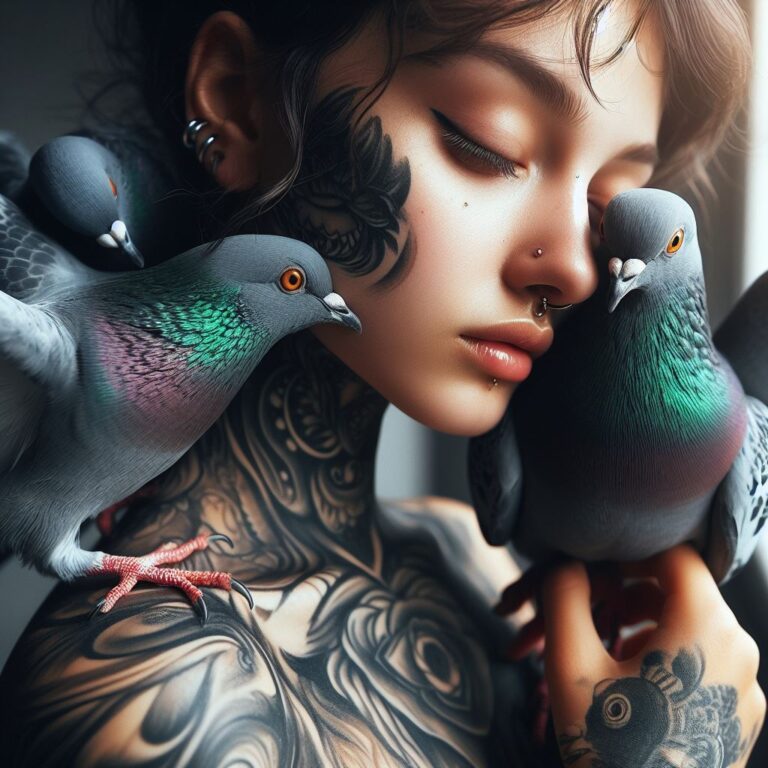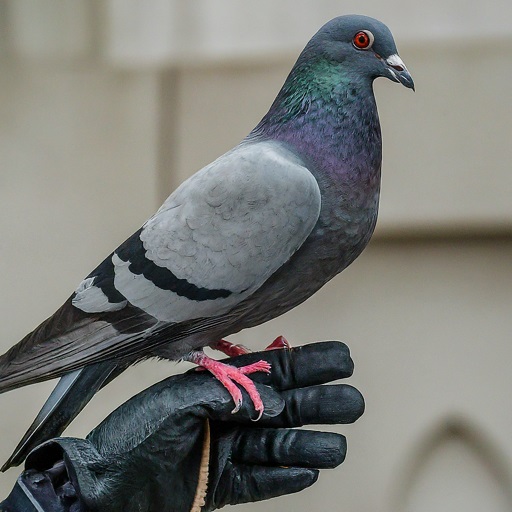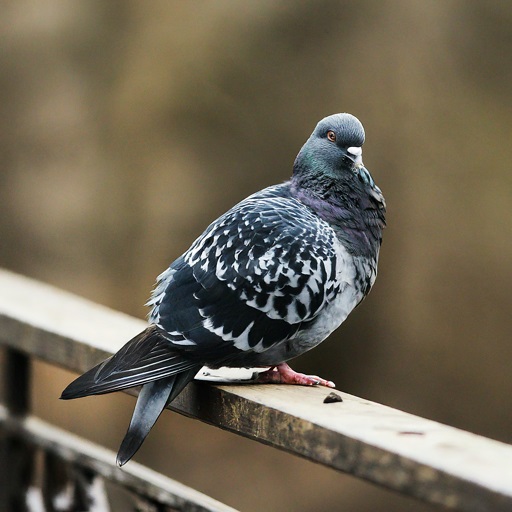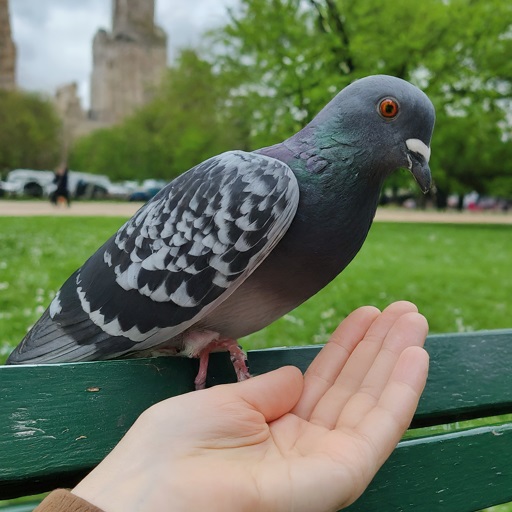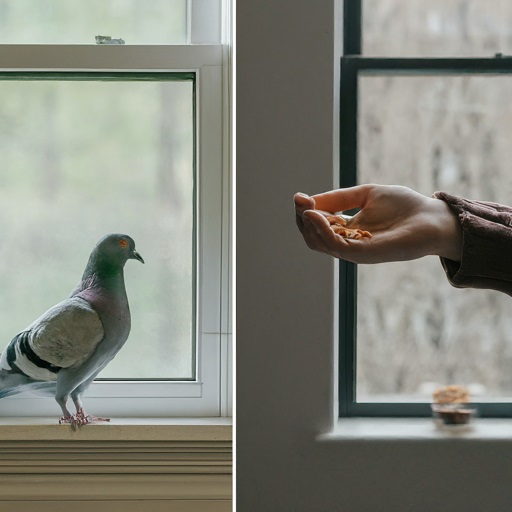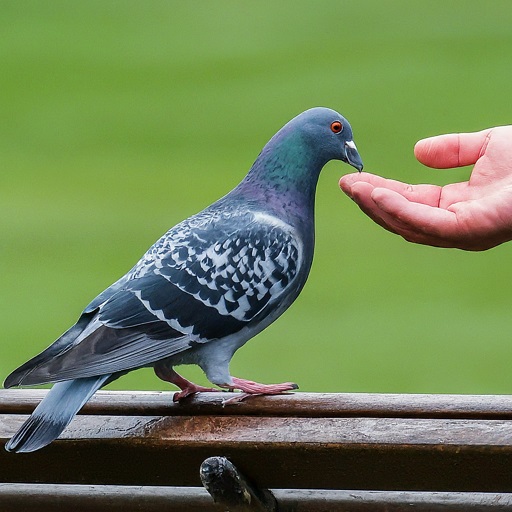Why Do People Hate Pigeons? 5 Major Reasons
Pigeons are frequently seen in urban cities, parks & squares with mixed emotions. No matter how harmless these birds are seen, few people hate them while some endear them. You can find many people endearing & even feeding pigeons, while others deeply dislike these feathered creatures. In this article, I will help you explore five reasons ‘why people hate pigeons’ backed by hours & hours of Research.
Here, you will be delving into the misconceptions & stereotypes, pigeon overpopulation as a pest, cultural perceptions, and their environmental impact. Therefore, if you want to learn all these things, put your researcher hat on & uncover the truth behind the pigeon hatred among some people. Let’s begin with learning five reasons why people hate pigeons.
Why Do People Hate Pigeons?
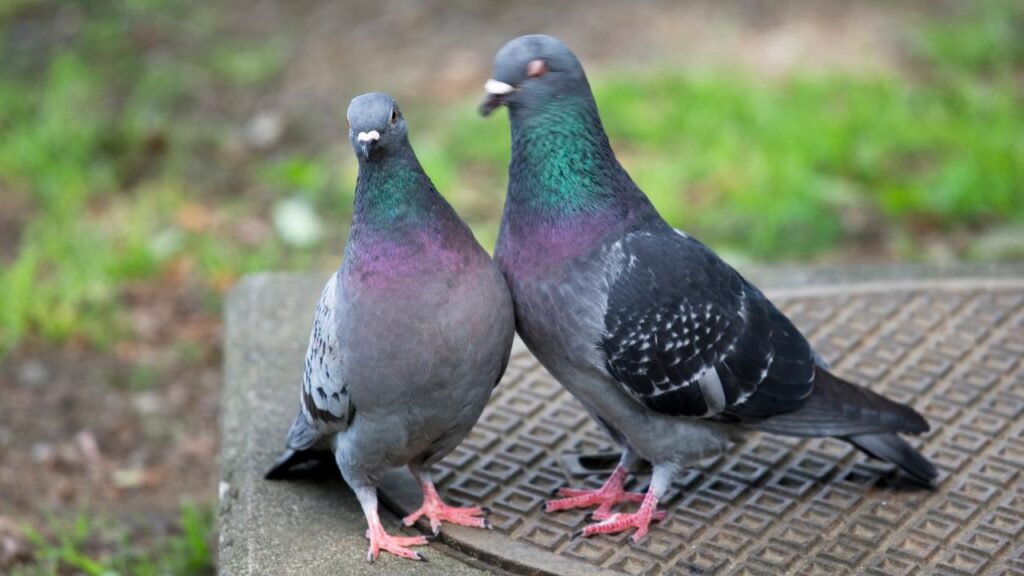
Misconceptions & Stereotypes about Pigeons
Perceived as “Dirty” Birds
First, pigeons have long been associated with UN sanitary conditions, leading to the perception that they are dirty Birds. A study by the University of Michigan found that pigeons have been mistakenly blamed for transmitting diseases to humans, which is wrong. Even though pigeon & their dropping may pass pathogens that can cause health issues in humans, it is less likely to occur.
The Research found that pigeons are not significant factors of diseases & their dropping do not possess serious health issues as commonly believed. Pigeon droppings have been used historically as a nitrogen resource for fertilizing crops. In addition, I also learned about a survey conducted by the National Society revealing that urban pigeons are more likely to be cleaner than their rural counterparts due to the excess of abundant food & water sources in cities. Despite this finding, the misconception persists, contributing to pigeon hatred among people.
Association with Urban Decay & Filth
Sometimes pigeons are also linked to urban decay & filth, creating a negative image in many people’s minds. If you check the historical records, you will find that pigeons have been companions to humans for thousands of years, symbolizing peace & communication. When I was researching the relationship between humans & pigeons in ancient civilizations, I learned that they were used as messengers carrying crucial information across vast distances.
A research study by the University of Oxford found the negative association between pigeons & urban decay began during the industrial revolution when rapid urbanization led to overcrowding & unsanitary living conditions. Therefore, we can say that pigeons were wrongly blamed for contributing to the filth, even though the real culprits were poor waste management & pollution. All this cultural perception has perpetuated over time, impacting how pigeons are also viewed today.
Pigeon Overpopulation & Control Measures
Problem of Overpopulation
One of the primary reasons why people hate pigeons is their rapid population growth in urban areas. According to a compensable study by the national wildlife Research Centre, the pigeon population has thrived due to the abundance of human scrap food & the shelter available provided by the cities. Also, pigeons are known for their ability to breed year-round with short incubation periods, further contributing to their exponential growth.
To know more about pigeon nesting season, consider reading my article on ‘When Do Pigeons Nest & breed. If you look at New York City alone, you will find over 1 million pigeons residing under bridges, windowsills, buildings, parks, etc., with human settlements. The Department of Prepared this reportSanitation & this kind of overpopulation will further lead to conflicts with humans & other bird species, impacting the local ecosystem.
Human-Pigeon Conflict & Control Methods
As our little friend population continues to grow, conflict will also arise between us & them. Pigeons seek food from public places & may become aggressive in their pursuit. This might also force us to implement various control measures to manage the pigeon population. In fact, according to Research by the human society of the United States, we should employ common control methods like deterrents, including spikes & netting, to prevent pigeons from roosting in specific areas.
Also, we should consider bird control techniques like administrative contraceptives through feeders, which have always been proposed to control pigeon reputation reproduction humanely. However, make sure that we also consider the ethics & efficiency of such measures as indicated by the study published in the Journal of applied animal welfare. The Research emphasizes the importance of humane control methods to avoid harming these magnificent creatures.
Pigeons as Pests & Nuisances
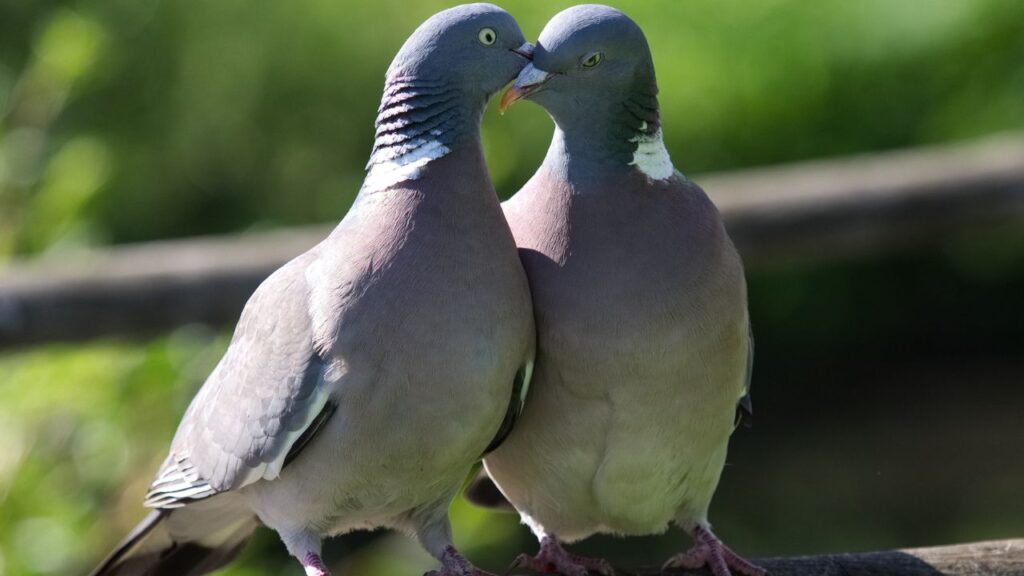
Pigeon Droppings & Property Damage
Another primary reason people dislike pigeons is the dropping which can cause damage to buildings & public species. According to a study by the University of California Davis, pigeon dropping may contain uric acid known to corrode metal, erode store work & damage paint. Also, the economic impact of cleaning & repairing damage caused by pigeon dropping runs into millions of dollars annually.
Therefore, you should never try to host a pigeon nest on your property as it may encourage more pigeons to build & roast together at that place, further increasing the risk of damage to your property. We have shared an in-depth article on ‘How to Get Rid of Pigeon Nests‘ and ‘How To Stop Pigeons Nesting.’ However, before you consider pigeon nest removal, I will advise you to read my articles on ‘What Happens If You Destroy a Pigeon Nest‘ and ‘Why Are Pigeon Nests So Bad.’
Coming back to the point, you can easily manage pigeon droppings effectively, especially if you keep them in pets. It would be best to put a liner beneath their cage to collect their dropping. However, when it comes to wild pigeons dropping in cities like London, you will find many innovative cleaning techniques. This method usually reduces the maintenance cost while helping preserve historical structures from potential damage.
Disruptive Behaviors of Pigeons
In public places, pigeons can also be aggressive or exhibit destructive behavior leading to annoyance & frustration among people. Many people often perceive dropping on sidewalks & benches as a disturbance. Also, their aggressive scavenging for food & cooing sounds to disrupt the quieter surroundings in parks, which people hate.
Studies published by the University of Basil found that environmental factors usually influence pigeon vocalization & their cooing. Even though pigeon going may seem bothersome to some people, it is important to remember that pigeons communicate through vocalization, much like other bird species. You can minimize disruptive behavior in areas where pigeon populations are well managed. Also, proper waste management & the restrictions of feeding them can significantly reduce pigeon-related nuisance.
Pigeons & Cultural Perceptions
Superstitions & Beliefs
If you check our culture & history, you will find pigeons deeply ingrained in human culture, often portraying a symbol of love, peace, and communication. Some people prefer to keep pigeons due to their cultural importance. To know more about this, consider reading my article on five reasons people keep pigeons as pets. Also, never mind checking my other article on Pigeons As Pets Pros and Cons.
Coming back to the point, some cultures associate pigeons with superstitions & beliefs influencing people’s opinions. While doing my research, I found a paper published in the Journal of info biology & Ethanol Medicine, emphasizing pigeons have been considered both sacred & taboo in different societies. Harming pigeons are believed to bring bad luck in some cultures, while others are associated with positive omens.
Pigeon in Others in Art & Literature
Surprisingly, pigeons also left their mark on art & literature throughout history. You can find many things from classical painting to modern stream arts where pigeons have been depicted in various forms of artistic expression. Also, pigeons have inspired many poets, authors, & artists to reflect on the theme of freedom, unity, & human connection. Undoubtedly, pigeon inclusion in literature & art has shaped cultural perceptions & emotions toward these Birds too.
Environmental Impact of Pigeons
Pigeons & Native Bird Species
As pigeons thrive in urban environments, concerns arise about their impact on native bird species. A study that the University of Florida recently conducted revealed that pigeons may compete with native Birds for food and nesting habits, potentially affecting the biodiversity of the local ecosystem. Therefore, we must recognize human activities like habitat destruction & pollution that significantly impact biodiversity. Many studies have consistently shown pigeons coexist with other native Birds when proper management strategies are implemented accurately.
Feeding Habits & Human Behavior
Also, few people hate pigeons due to the practice of feeding them, which seems unhygienic to some. The practice of feeding pigeons contributes to overpopulation & dependence on human food. According to her article published in the Journal, animals highlighted the correlation between human feeding habits & the abundance of pigeons in urban areas.
We should always encourage responsible feeding behavior to maintain a healthy pigeon population without causing harm to their well-being. If you look out, for example, you can find many cities like Venice that have already taken the initiative to discourage pigeon feeding leading to a decline in the numbers as reported by the study published in the Journal of Urban Ecosystem.
Conclusion
After reading this article, I hope you know why people hate pigeons. People’s dislike of pigeons stems from a combination of misconceptions, pigeon overpopulation, bad reputation as a pest, cultural beliefs, and environmental concerns. I have given my best to give you a proper understanding of the true nature of pigeons and the importance of implementing humane & responsible management strategies to coexist with these feathered City dwellers.
I hope this article, where I have shared five reasons why people hate pigeons, has embarked you on a journey of knowledge & Research. Always remember pigeons’ role in our history, art & culture. I will highly advise you to consider sharing this article with other fellows, which not only helps in enlightening ‘why people hate pigeons’ but also reduces pigeon hatred, fostering harmony between humans & these often misunderstood Birds. Check my other helpful guide on the care & management of pigeons as pets. See you in the next post; till then, take care, and goodbye.

